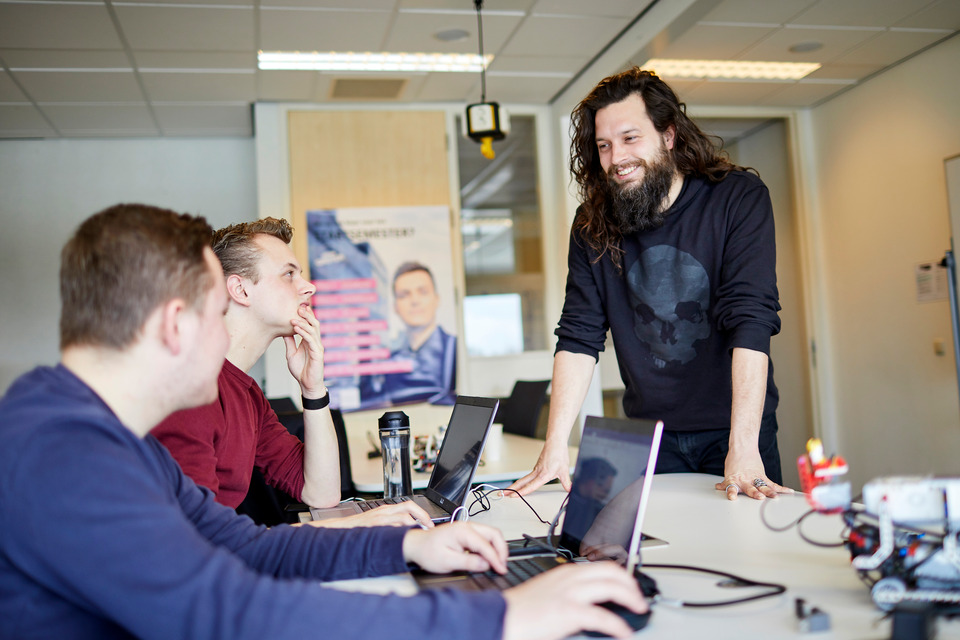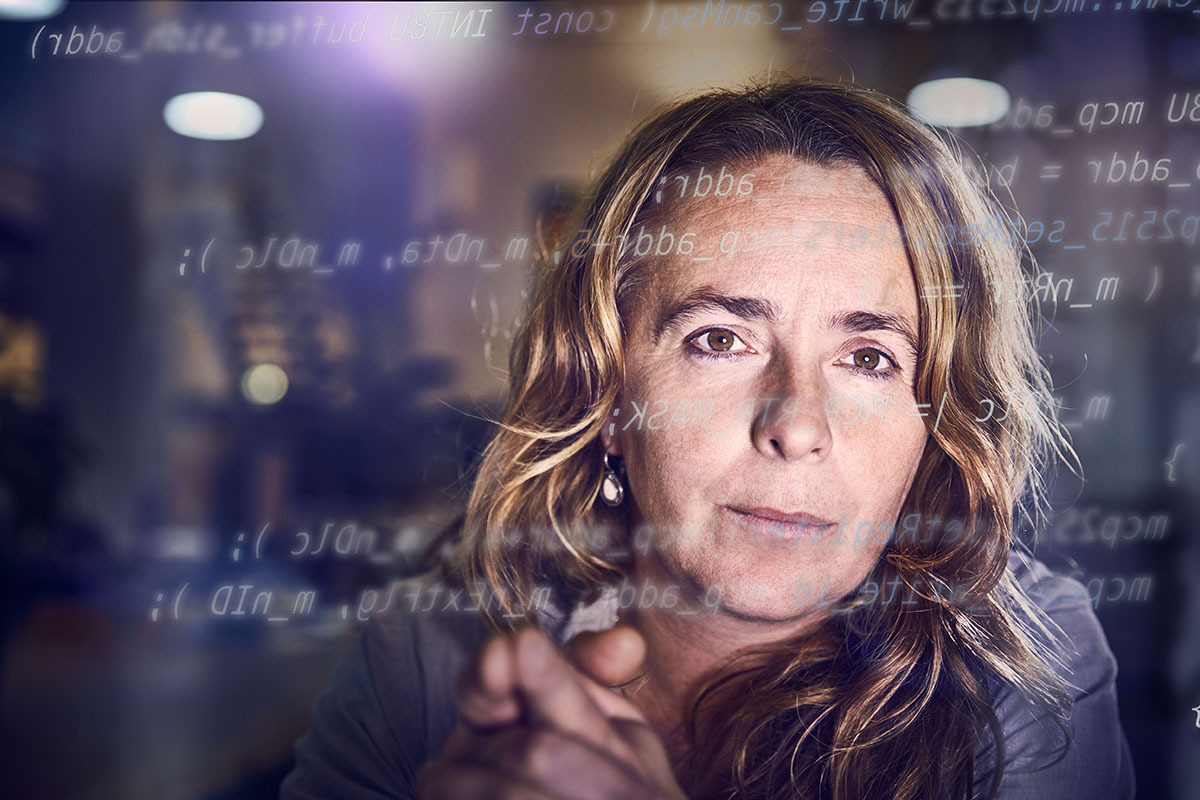“Teachers and students really make an effort to get to know one another. This makes it easier to collaborate during projects and deploy each other’s qualities and interests.”

How do you regard being a teacher?
How is the contact with students?
What differences do you see between Tilburg and Eindhoven?
How do students perceive this difference?
You have worked at Fontys for your entire career. Extraordinary!
What are you proud of?
What do you teach your students?
Björn
Teacher ICT






